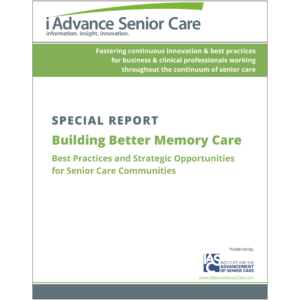West Coast tsunami response
The impact of last week’s tsunami in Japan was felt around the world and our hearts go out to all of the people affected by this terrible tragedy. Immediately after the event, word began to spread that the United States may receive ripple effects on its own West Coast shores. A tsunami advisory was then announced by the National Weather Service for the West Coast, impacting Emeritus Senior Living communities in Northern California, Oregon, and Washington coastal locations.
Our residents and their families come to Emeritus Senior Living with the peace of mind that our staff will provide exceptional care in every circumstance, and that includes making sure the physical surroundings are safe from nature’s elements. On March 11, we announced via Twitter and our Web site that the company’s Emergency Response Plans had been initiated. Our tweet read: “Emergency response plans have been put into effect in all of our West Coast senior communities. Read More.” Readers could then follow a link to information on our Web site.
While many of our communities are located far enough away from the coast that residents did not need to be relocated, there were a few locations where we took proactive steps and moved residents. In the early morning, a Tsunami warning was issued for the Oregon Coast, impacting Necanicum Village, a memory care and assisted living community located in Seaside, Oregon. Staff at the community placed prompt calls to regional management team members and bus transportation was quickly arranged. At 5:30 a.m., a bus full of residents and several staff members left Necanicum Village for its sister community Osprey Court. Osprey Court staff were awaiting their arrival with a warm breakfast already prepared.
However, an additional 32 assisted living residents still had to be evacuated. Staff members began transporting these residents to the Seaside Heights Elementary School. The remaining staff stayed with these residents as they ate breakfast and received their morning medications at the temporary site. The Seaside fire department and paramedics were very instrumental in helping to evacuate the residents.
While we were very fortunate that a natural disaster did not reach our shores, our advanced planning ensured that our communities were well prepared in the event of an emergency and that our residents were safe. I encourage all long-term care facilities to take a look at their emergency response plans to make sure they are prepared should a natural disaster ever require a total evacuation. Our residents have since returned from their temporary locations and everyone is happy to be home.
I Advance Senior Care is the industry-leading source for practical, in-depth, business-building, and resident care information for owners, executives, administrators, and directors of nursing at assisted living communities, skilled nursing facilities, post-acute facilities, and continuing care retirement communities. The I Advance Senior Care editorial team and industry experts provide market analysis, strategic direction, policy commentary, clinical best-practices, business management, and technology breakthroughs.
I Advance Senior Care is part of the Institute for the Advancement of Senior Care and published by Plain-English Health Care.
Related Articles
Topics: Articles , Operations











